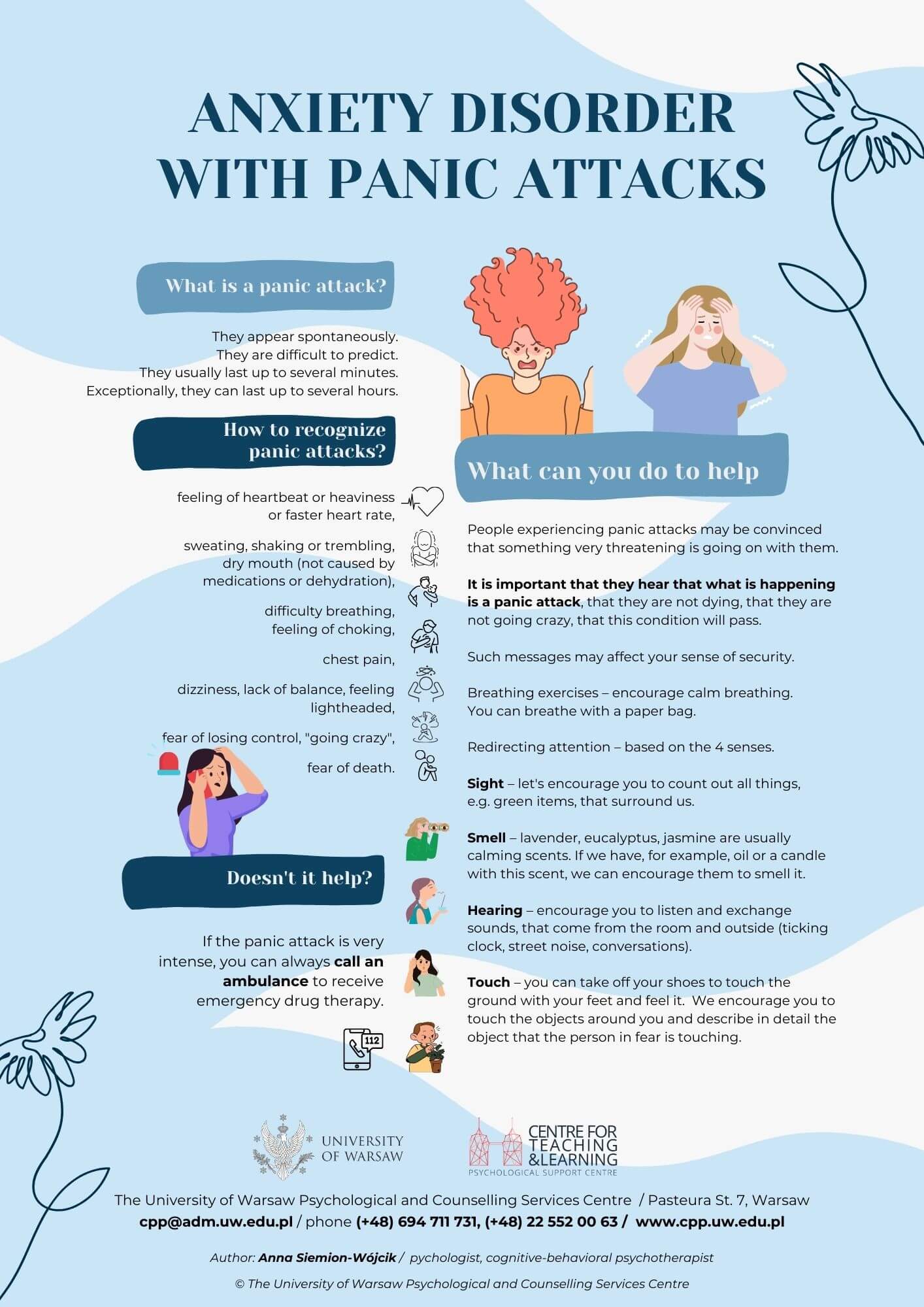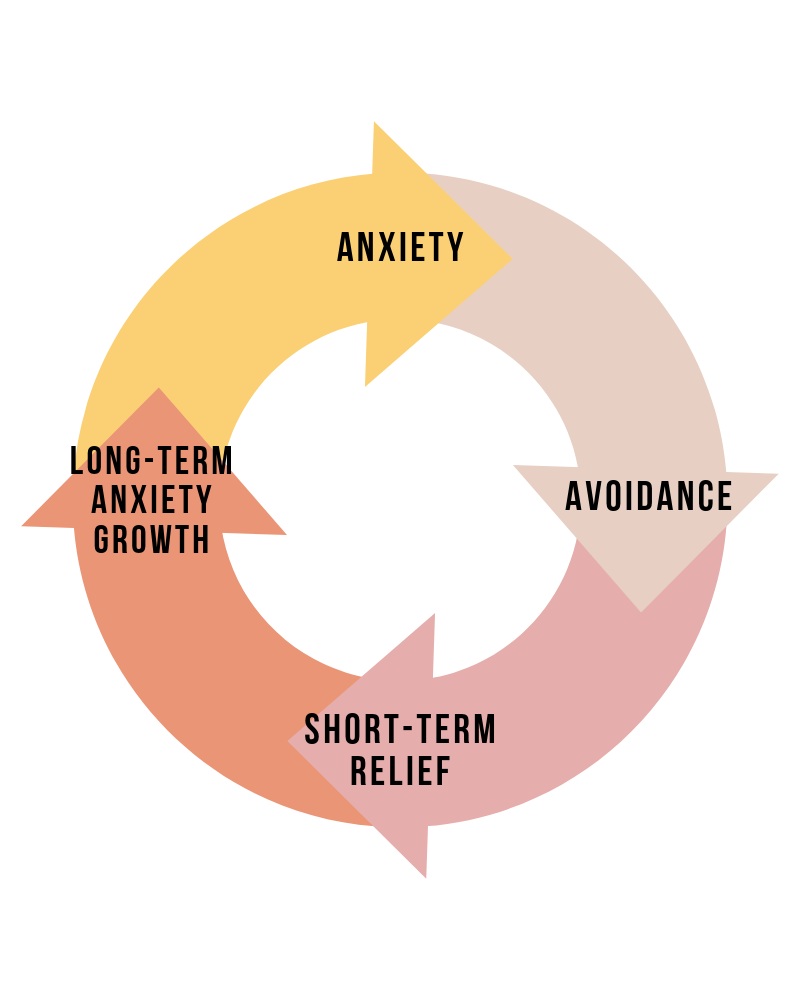Scientifically supported counselling for anxiety with empathetic guidance
Scientifically supported counselling for anxiety with empathetic guidance
Blog Article
Discovering Various Approaches in Counselling for Stress And Anxiety Condition for Long-term Adjustment
When dealing with anxiousness disorders, it's important to discover a range of therapy strategies. Each technique supplies distinct understandings and tools to aid you handle your symptoms successfully. You could locate that integrating strategies can yield the most effective results. Nevertheless, recognizing the subtleties of these methods is crucial to cultivating enduring adjustment. Suppose the right mix could launch a brand-new degree of emotional health for you?
Recognizing Stress And Anxiety Disorders: A Quick Summary
Anxiety disorders, which affect millions of people worldwide, can substantially impact life. You could experience overwhelming feelings of concern or stress that appear unmanageable. These sensations can result in physical signs and symptoms like an auto racing heart, sweating, or perhaps dizziness. Typical kinds of stress and anxiety conditions include generalised anxiousness condition, panic attack, and social stress and anxiety disorder. Each has one-of-a-kind signs, however they all share a tendency to interrupt your regular and relationships.Understanding the origin of your anxiousness is essential. It may come from genetics, brain chemistry, or life experiences. Acknowledging your triggers can help you manage your feedbacks better. It's crucial to bear in mind that you're not the only one in this struggle. Lots of people deal with comparable challenges, and looking for assistance is a strong step toward sensation much better. By finding out about anxiousness problems, you're currently on the course to understanding and managing your problem better.
Cognitive-Behavioral Therapy: Testing Adverse Thought Patterns
In Cognitive-Behavioral Treatment, you'll start by determining the adverse thought activates that contribute to your anxiety. As soon as you acknowledge these thoughts, you'll deal with changing them with even more favorable alternatives. With each other, you'll build effective coping methods to assist manage your anxiety in day-to-day scenarios.
Identifying Adverse Thought Triggers

When you run into minutes of distress, identifying the specific triggers behind your adverse thoughts can be crucial in taking care of anxiety. Begin by focusing on scenarios that provoke sensations of fear or worry. Is it a jampacked space, a future deadline, or a discussion with certain people? Jot down these circumstances in a journal. This will certainly assist you identify patterns in your thinking. Notification physical experiences that accompany your negative ideas, like a racing heart or rigidity in your upper body. By identifying these triggers, you obtain insight right into what's sustaining your anxiousness. Recognizing these connections is the primary step in testing those ideas and inevitably regaining control over your psychological actions.
Changing Ideas With Positives
Challenging negative thought patterns is a vital action in transforming your attitude and reducing anxiousness. You might frequently locate on your own trapped in cycles of insecurity or tragic reasoning. Rather than letting these ideas determine your sensations, method replacing them with practical options or favorable affirmations. For example, when you believe, "I can't manage this," shift it to, "I can handle difficulties one action at once." This simple change can significantly impact your emotion. On a regular basis identifying and responding to these negative thoughts helps produce a healthier inner discussion. Bear in mind, it takes some time and effort, however continually exercising this method can cause lasting modification, equipping you to encounter anxiousness with restored self-confidence and strength.
Structure Coping Approaches With Each Other
Changing unfavorable ideas is just the start of managing anxiety properly. To create enduring change, you need to build coping techniques that empower you. Cognitive-Behavioral Treatment (CBT) helps you determine and challenge those purposeless thought patterns. Together, you and your therapist can discover how these thoughts impact your feelings and behaviors.Start by creating sensible methods, like journaling or mindfulness exercises, that permit you to confront anxiousness head-on. When you encounter your worries gradually, you'll find out to respond in a different way.

Mindfulness and Acceptance-Based Approaches: Cultivating Present-Moment Awareness
As you browse the complexities of anxiety, including mindfulness and acceptance-based approaches can significantly improve your ability to cultivate present-moment understanding. By focusing on the here and now, you'll find that you can observe your thoughts and feelings without judgment (Counseling services for anxiety). This practice helps you acknowledge your anxiety without feeling overwhelmed by it.Engaging in mindfulness workouts, such as deep breathing, body scans, or led reflections, permits you to ground yourself in your present experience. Acceptance-based methods urge you to welcome your feelings instead of deal with against them. When you accept your sensations, they shed their power over you.Incorporating these practices into your daily regimen can change just how you reply to anxiety. You'll establish strength and learn to navigate stressful circumstances with higher simplicity. Inevitably, cultivating present-moment recognition lays the structure for long lasting change, encouraging you to lead a more meeting life
Exposure Treatment: Confronting Concerns Progressively
Direct exposure treatment helps you face your anxieties in a steady means, making it less overwhelming. You'll discover techniques to deal with anxiety-provoking circumstances detailed, while additionally building coping approaches to manage your reactions. This strategy empowers you to take control and reduce anxiousness gradually.
Progressive Direct Exposure Techniques

When encountering anxiousness, progressively confronting your fears can be a powerful method to restore control. This method, called gradual direct exposure, includes gradually exposing on your own to the situations or objects that trigger your anxiety. Start with much less challenging situations and progressively function your means as much as even more difficult ones. If you're terrified of public talking, you could start by speaking in front of a mirror, after that advance to sharing ideas with a pal, and at some point deal with a small group. Each step aids desensitize you to the concern, constructing your self-confidence in time. Keep in mind, it's necessary to rate yourself and commemorate tiny success as you relocate with this procedure, enhancing your capacity to handle stress and anxiety properly.
Building Coping Techniques
Structure efficient coping methods is vital for managing stress and anxiety, specifically as you face your concerns slowly - Counseling services for anxiety. One effective approach is direct exposure therapy, where you begin by facing your anxieties in a regulated way. Start with much less daunting scenarios and gradually work your means approximately more challenging situations. This steady exposure assists desensitize you to anxiousness sets off, making them much less overwhelming.Incorporate leisure strategies, such as deep breathing or mindfulness, to relax your mind throughout direct exposure. Track your development, commemorating tiny triumphes in the process to enhance your self-confidence. Bear in mind, it's all right to take your time; the objective isn't excellence yet steady enhancement. By developing these approaches, you'll equip yourself to browse anxiousness and accept life more completely
Psychodynamic Therapy: Uncovering Root Reasons of Anxiousness
Psychodynamic therapy discovers the unconscious mind, disclosing the root causes of your anxiousness. By examining your thoughts, feelings, and previous experiences, this technique assists you reveal underlying conflicts and unsolved issues that may add to your present anxiousness. You'll collaborate with a therapist to check out youth experiences, partnerships, and emotional patterns that form your responses today.As you acquire understanding right into these much deeper layers of your psyche, you'll start to identify exactly how past events influence your existing habits. This understanding can bring about catharsis, permitting you to refine feelings you may have suppressed.Through the healing connection, you can also determine defense reaction that may have developed with time, providing a clearer path to alter. Ultimately, psychodynamic therapy equips you with the tools to address your anxiety at its core, advertising long lasting improvement in your psychological well-being.
Integrative and All Natural Strategies: Incorporating Strategies for Greater Efficacy
Integrating numerous therapeutic strategies can improve your journey towards taking care of stress and anxiety better. By integrating aspects from cognitive-behavioral therapy, mindfulness practices, and alternative techniques, you can create a personalized strategy that resolves your unique demands. You could utilize cognitive-behavioral methods to challenge unfavorable idea patterns while integrating mindfulness workouts to ground yourself in the present moment.Additionally, discovering all natural practices such as yoga exercise or meditation can advertise leisure and lower anxiety symptoms. This blend allows you to create higher self-awareness and resilience.Experimenting with these varied techniques can help you find see here what reverberates most with you. Bear in mind, it has to do with locating a harmony that works, instead of staying with a single strategy. This integrative method not only offers prompt relief but also fosters long-term skills for handling anxiousness, equipping you to recover control over your life.
The Role of Support Solutions: Structure Durability Via Link
While it may seem that managing anxiousness is a solitary journey, having a strong support group can play a vital duty in your resilience. Bordering yourself with empathetic good friends, family members, or support system creates a secure space where you can honestly share your sensations and experiences. You remind on your own that you're not alone in this struggle.These partnerships use inspiration and can offer useful coping strategies that have functioned for others when you connect with others. It's also an opportunity to acquire viewpoint; friends can aid you see situations differently, lowering feelings of isolation.Moreover, psychological support cultivates a sense of belonging, which can greatly reduce stress and anxiety signs. By leaning on your support system, you can build resilience and deal with difficulties better. Remember, reaching out for assistance suggests strength, and it can make all the difference in your journey toward managing stress and anxiety.
Frequently Asked Questions
What Are the Common Signs And Symptoms of Anxiety Problems?
You could experience restlessness, exhaustion, trouble concentrating, impatience, muscle stress, and sleep disruptions. Physical signs can consist of rapid heartbeat, sweating, and shivering. Acknowledging these signs early can aid you seek suitable assistance and treatment.
The Length Of Time Does Treatment Typically Last for Stress And Anxiety Disorders?
Therapy for anxiety problems normally lasts anywhere from view a few weeks to numerous months. It actually depends upon your individual demands, progress, and the techniques your therapist utilizes to aid you manage your stress and anxiety successfully.
Can Drug Be Made Use Of Alongside Therapy for Anxiety?
Yes, drug can definitely be made use of together with therapy for anxiety. Incorporating both approaches usually enhances therapy effectiveness, aiding you handle symptoms while checking out underlying issues through therapy (Counseling services for anxiety). Always consult your doctor for customized guidance
Exist Self-Help Approaches for Handling Anxiety?
Yes, there are numerous self-help approaches for taking care of stress and anxiety. You can exercise mindfulness, take part in normal exercise, preserve a well balanced diet regimen, establish a regular, and utilize deep breathing methods to aid reduce anxiousness signs and symptoms efficiently.
Exactly how Do I Know if I Need Specialist Help for Anxiousness?

Report this page